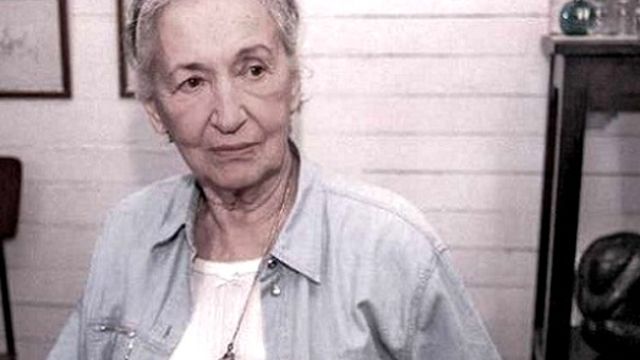
Olga Blinder
The painter, printmaker, and influential educator Olga Blinder was born in 1921 in Asunción, Paraguay. She received her formal education in engineering (1939–43) and later in education (1962–65) at the Universidad Nacional de Asunción. Her art training came from private instruction in Argentina and Brazil with Lívio Abramo (1902–1992), Ofelia Echagüe (1904–1987), and João Rossi (1923–1999), among others. Blinder had her first solo exhibition in 1952 at the Centro Cultural Paraguayo Americano in Asunción, accompanied by an essay ("El manifiesto de arte moderno Paraguayo") written by the artists Josefina Plá (1909–1999) and João Rossi. In 1954 Blinder cofounded the group Arte Nuevo with Plá, Lilí del Mónico (b. 1910), and José Laterza Parodi (1915–1981). Together they organized Primera Semana de Arte Moderna, which echoed Modern Art Week (1922) in São Paulo and similarly aimed to challenge existing artistic paradigms. Considering the pervasive academicism and conservatism of art in Paraguay at the time, Blinder's work was groundbreaking, and her impact on the artistic milieu of her country was fundamental. Following the conviction that the "new art" should impact the everyday lives of ordinary people, Blinder painted murals in schools and sport clubs in Asunción during the 1950s. Similarly, those ordinary people—especially working-class women and children—and their ordinary lives became the subjects of her art.
Although a prolific painter, she is perhaps best known for her prints, which were widely disseminated through the circuits of international print biennials and competitions in Latin America, Europe, and Japan. In printmaking, first in woodcuts in the 1960s and later in zincographs in 1970s, Blinder simplified and synthesized the human form to its basic characteristics and mined the expressive possibilities inherent in materials, especially rough wood grain. Some prints—such as the series Los torturados (The tortured, ca. 1970), in which human forms were confined by the parameters of the extremely elongated woodblocks—quite explicitly addressed the situation under the dictatorship of Alfredo Stroessner (1954–89). Blinder was a highly esteemed educator and published extensively on art and education, including subjects related to indigenous forms of expression. Between 1959 and 1976 she directed the Escolinha de Arte of Paraguay in the Brazilian Cultural Mission in Asunción and, later, the Instituto de Arte of the Universidad Nacional de Asunción. She was a member of numerous educational associations, including the Consejo Latinoamericano de Educación por el Arte. Her Colección Circulante (engravings and drawings presented in traveling exhibitions in schools and other public places), which she established in 1972 with the artist Carlos Colombino (1937–2013), laid the foundations for the Museo Paraguayo de Arte Contemporáneo. A recipient of multiple prizes and distinctions in Paraguay and abroad, she was awarded an honorary doctorate by the Universidad Nacional de Asunción in 2006. Blinder died in 2008.
—Dorota Bizcel
Selected Solo Exhibitions
1952 Centro Cultural Paraguayo Americano, Asunción
1969 Sala Santa Catalina del Ateneo de Madrid
1975 Xilozincograbados, Centro de Estudios Brasileiros, Asunción
1989 El proceso de la mancha: Olga Blinder, Galería Arte-Sanos, Asunción
2003 Olga Blinder: Antología retrospectiva, 1950–1990, Casa Castelví–Manzana de la Rivera, Asunción
Selected Bibliography
Escobar, Ticio. Una interpretación de las artes visuales en el Paraguay. Asunción: Centro Cultural Paraguayo Americano, 1982.
———. "Parallel Modernities: Notes on Artistic Modernity in the Southern Cone of Latin America: The Case of Paraguay." Art in Translation 3, no. 1 (2011): 87–120.
Fraser, Valerie. "Olga Blinder: Biography." ESCALA (Essex Collection of Art from Latin America). 2008. http://www.escala.org.uk/collection/contributors/valerie-fraser/text/AUTH537.
Goossen, Teresa. Olga Blinder: Una biografía. Asunción: Goossen, 2004.
Plá, Josefina. Pasión docente y vocación plástica: Olga Blinder. Asunción: Centro Cultural de España "Juan de Salazar," Embajada de España en Paraguay, 2003


